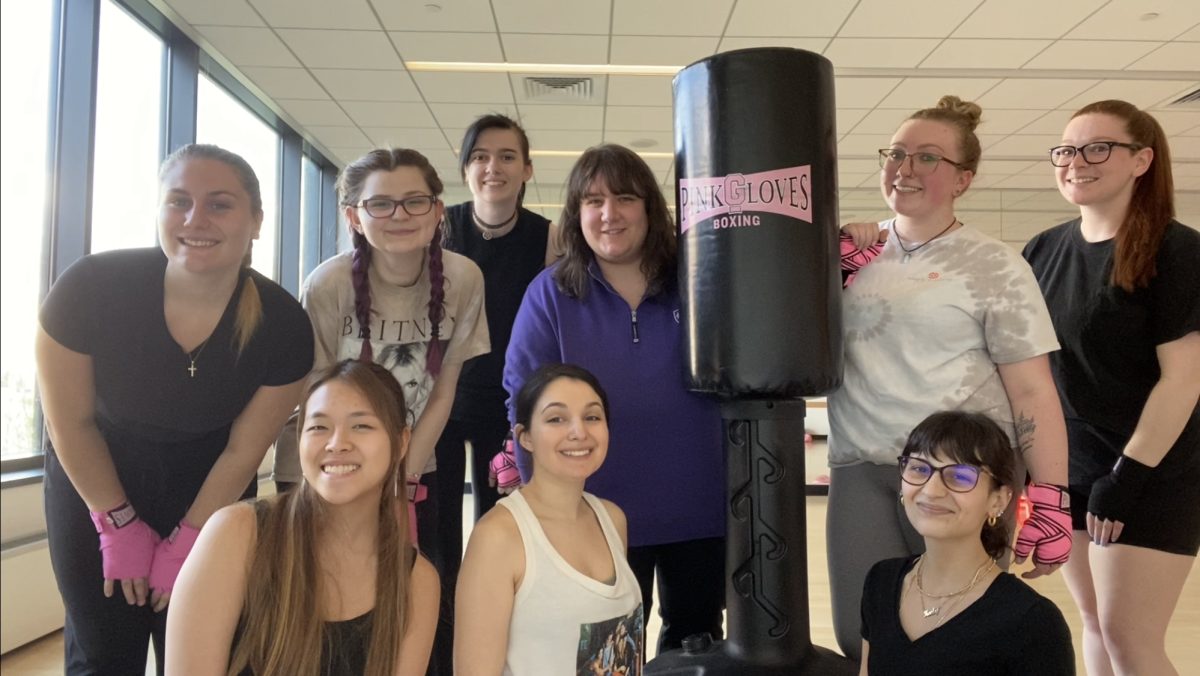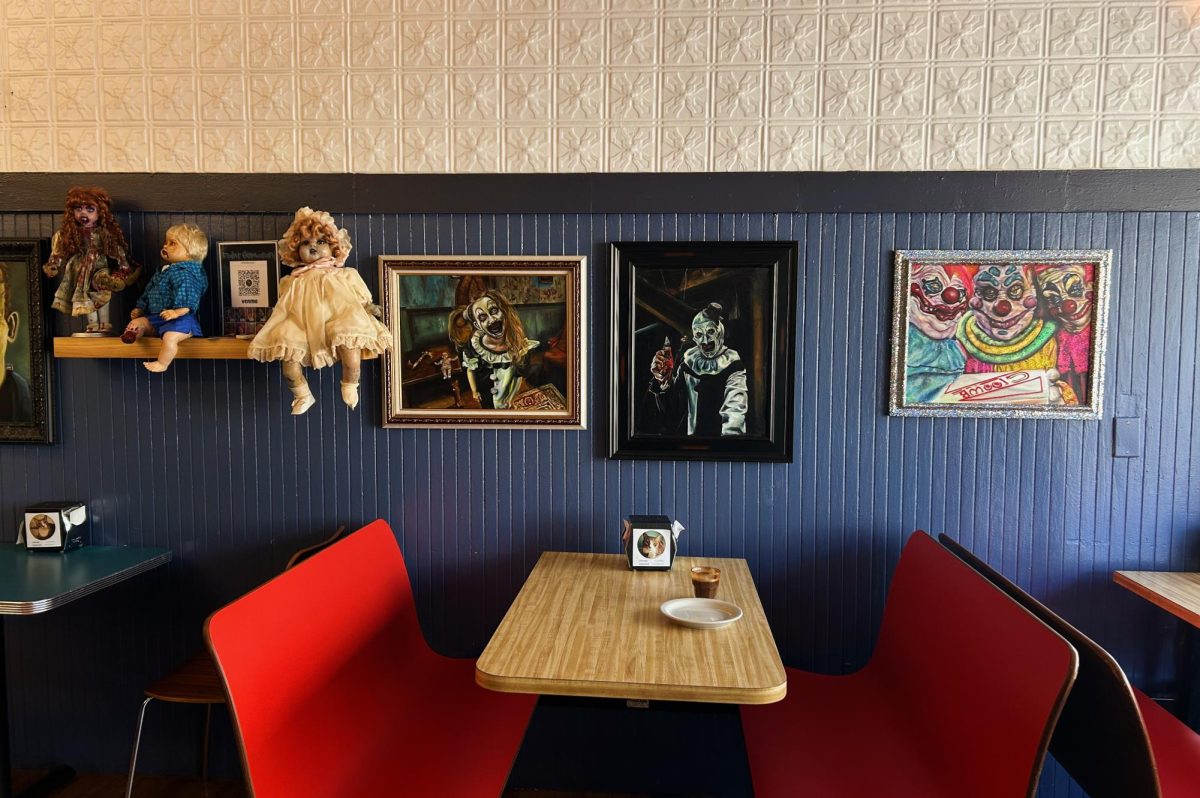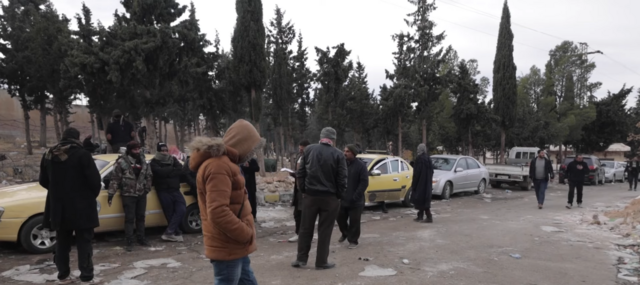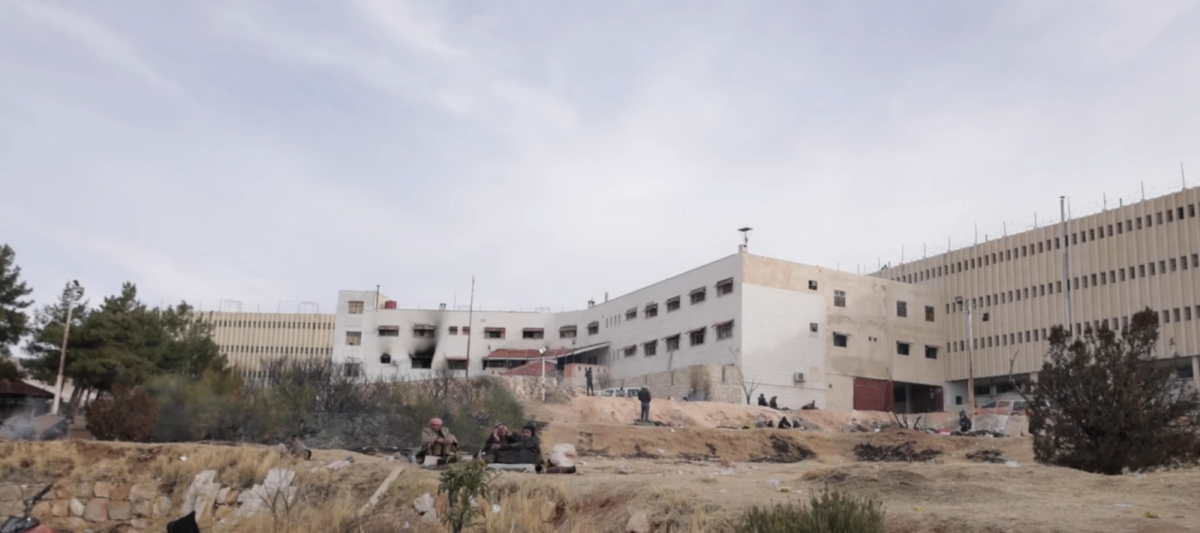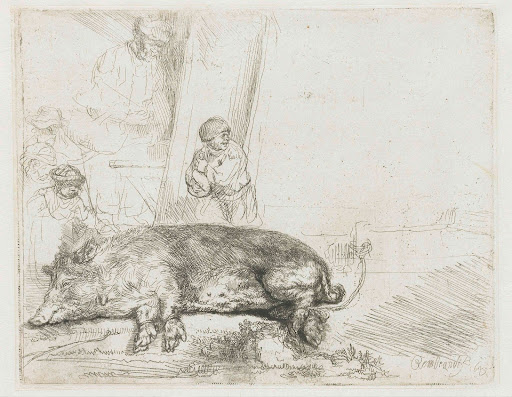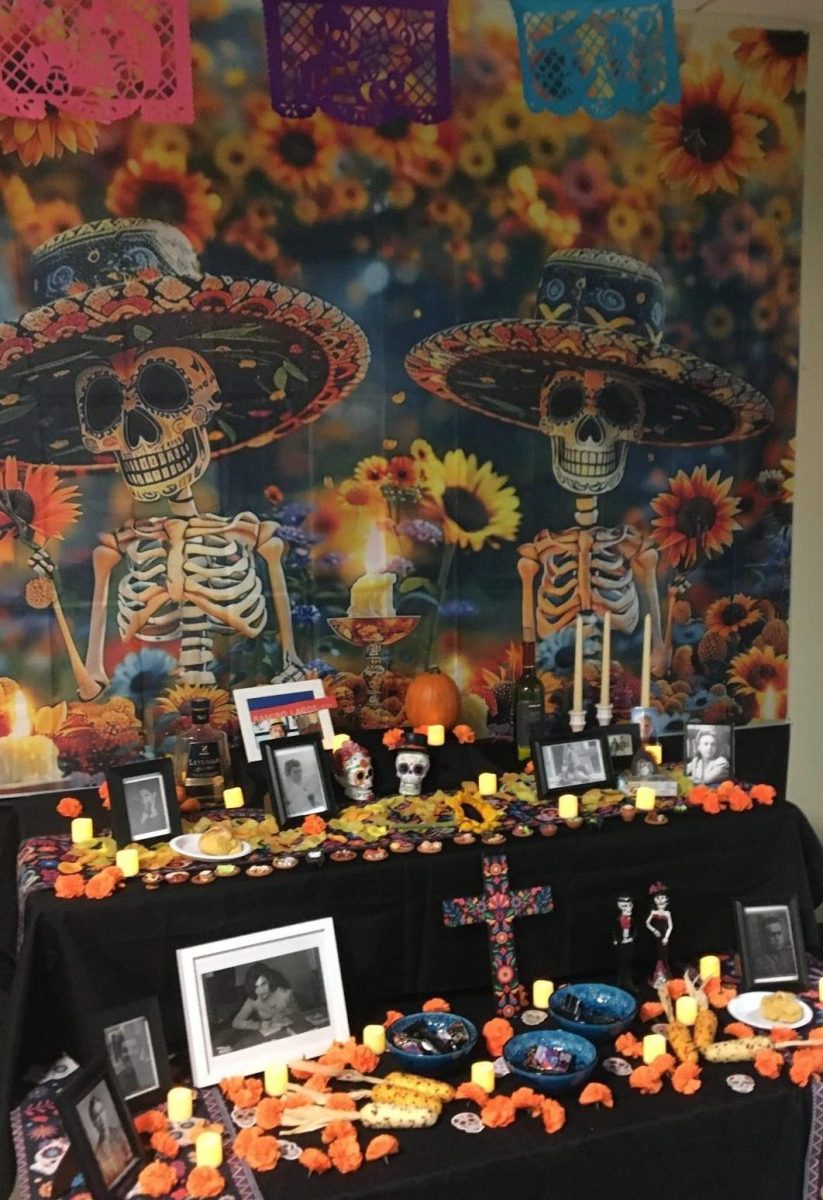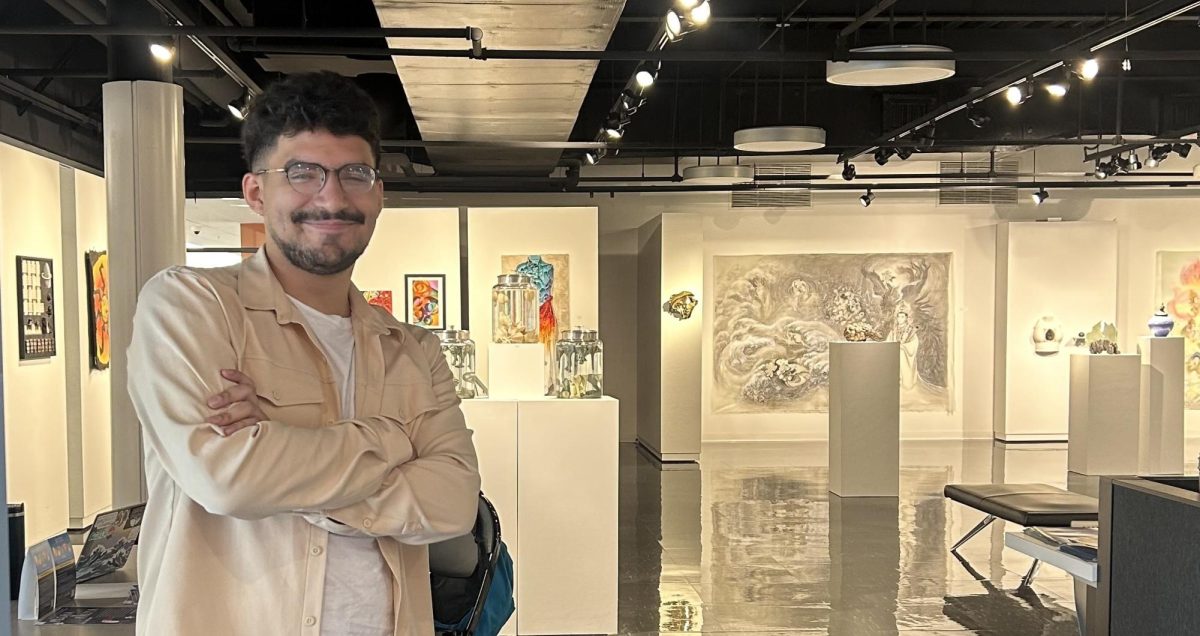Small candles light up black-and-white photos of lost friends and family, accompanied by offerings of their favorite food: pan de muertos, corn, sardines, and alcohol. Skeletons adorned with colorful makeup, tophats, and flower crowns decorate the tables, all surrounded by orange flowers. Papeles picados, colorful paper with cut-out designs, hang above and murals of skeletons with sunflowers and butterflies decorate the walls. The ofrenda is ready to welcome lost loved ones and ancestors back to the living world to visit and celebrate with friends and family for Día de los Muertos.
In honor of Día de los Muertos, the World Languages Department set up an ofrenda, an altar, in Sullivan 304 to allow students to honor their ancestors and experience this aspect of traditional Hispanic culture.
Originally a traditional Mexican holiday, Día de los Muertos is celebrated in several Spanish-speaking countries around the world. Friends and family unite to invite passed loved ones back to the living world during the two-day celebration on November 1 and 2. Fiestas fill the streets with music, dancing, and street food. La Catrina, an iconic skeletal character of Día de los Muertos, can be seen everywhere as women paint their faces white, wear colorful makeup emulating a skeleton, and dress in bright-colored dresses. Their faces are always framed with an oversized flower crown or a large hat. Children make papeles picados and eat sweet treats. Lost abuelos have a seat at the dining table and late tíos dance with their widows. Día de los Muertos honors the dead by celebrating life rather than mourning loss until the day that we join our ancestors in the afterlife.
“As the Department of Languages, we see a clear impossibility of dissociating the teaching of language from the culture: Both are always united and it is important to understand both,” Professor of Spanish Ana Pérez-Manrique states. “The altar offers presence, visibility, and representation on campus to the different cultures that form part of the student community: We all have something to contribute and all our cultures have value.”
“To the people of New York, London, and Paris, ‘death’ is a word that is never pronounced because it burns the lips. The Mexican, however, frequents it, jokes about it, caresses it, sleeps with it, and celebrates it. It is one of his favorite playthings and most steadfast love.”
-Octavio Paz, Mexican poet, El Laberinto de la Soledad, 1950
Correction: An earlier version of this story incorrectly identified the name of the World Languages Department.






